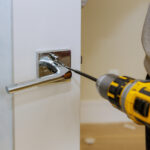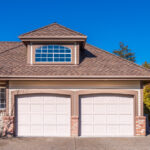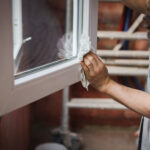Learn how a master key system can improve security, simplify key management, and streamline access control in Canadian multi-unit buildings. This guide covers benefits, system design, legal considerations, and practical tips for property managers and landlords.
Understanding Master Key Systems for Canadian Multi-Unit Properties
Managing a multi-unit building in Canada involves more than just collecting rent and maintaining common areas. One of the most critical aspects of property management is ensuring secure, efficient, and convenient building access for tenants, maintenance staff, and emergency responders. This is where a master key system becomes a powerful tool for landlords, property managers, and building owners.
Whether you manage a residential apartment complex in Toronto, a student housing block in Vancouver, or a commercial property in Calgary, a well-designed master key system can greatly improve your key management strategy and overall building security.
What Is a Master Key System?
A master key system is a hierarchical system that allows different levels of key access within a building or group of buildings. Each tenant or occupant has a unique key that opens only their unit, while management has a master key that can open all doors within the property. This system is especially beneficial for multi-unit buildings where multiple locks need to be controlled efficiently.
Key Components of a Master Key System
- Change Key: A tenant’s individual key that opens only their specific door.
- Master Key: A key that opens all locks in the system.
- Grand Master Key: A higher-level key that can open multiple master-keyed systems, ideal for large property portfolios.
- Keyway: The specific design and cut of the key, which helps control duplication and unauthorized access.
Benefits of a Master Key System for Canadian Landlords
Installing a master key system offers several advantages to Canadian landlords and property managers. These systems are designed to make access control simpler and safer while reducing the number of physical keys in circulation.
1. Simplified Key Management
One of the biggest headaches in property management is keeping track of dozens or even hundreds of keys. A master key system reduces clutter by allowing landlords and superintendents to carry just one or two keys that open all necessary doors. It also makes it easier to assign and revoke access when tenants move in or out.
2. Enhanced Building Security
With a professionally installed master key system, unauthorized duplication is much harder. High-security keyways, restricted keys, and patent-protected designs make it difficult for anyone to copy a key without permission. This is essential for maintaining apartment security and peace of mind for tenants.
3. Emergency Access
In emergencies like fires, water leaks, or medical events, quick access can be life-saving. A master key allows building staff or emergency responders to enter units swiftly without causing damage to doors or locks. This also helps reduce liability and repair costs.
4. Cost-Effective Maintenance
Rekeying individual units can be expensive and time-consuming. With a master key system, you can rekey a single unit without affecting the rest of the system. This flexibility is ideal for large properties and improves the long-term affordability of lock maintenance.
5. Professional Image and Tenant Trust
Having a well-organized, secure key system shows tenants that you take their safety seriously. It builds trust and reflects positively on your professionalism as a landlord or property manager. In a competitive rental market, this can be a strong differentiator.
Designing the Right Master Key System for Your Property
Every multi-unit building is unique, and so are its access requirements. Whether you manage a duplex, a mid-rise apartment, or a large residential tower, your master key system should be tailored to fit the structure and operation of your property.
Step 1: Assess Your Building’s Access Needs
Start by identifying all points of access within your building. This includes unit doors, main entrances, laundry rooms, storage lockers, mailrooms, garages, and mechanical rooms. Define who needs access to each area and at what level.
Common Access Levels
- Tenants: Access to their own unit and shared amenities.
- Maintenance Staff: Access to mechanical rooms, common areas, and units if required.
- Property Manager: Full access to all areas for inspections and emergencies.
Step 2: Choose the Right Locking Hardware
The performance of your master key system depends heavily on the quality of locks and cylinders used. In Canada, it’s important to choose hardware that complies with national and provincial standards, such as ULC-rated locks and weather-resistant components for exterior doors.
Consider high-security lock brands that offer patented key control and pick-resistant cylinders. This helps prevent unauthorized duplication and improves the overall security of your property.
Step 3: Work With a Professional Locksmith
Designing and implementing a master key system is not a DIY job. It requires technical expertise and proper planning to ensure long-term success. For professional locksmith services, you’ll want to work with a certified locksmith who understands master keying and can offer ongoing support.
At Fortify Services, our expert technicians specialize in property locksmith solutions for residential and commercial properties across Canada. We’ll help you design a custom master key system that matches your specific needs, complies with local codes, and maximizes security.
Step 4: Implement Key Control Policies
Even the best master key system can be compromised without proper key control. Create clear policies for issuing, tracking, and retrieving keys. Use a key logbook or digital key management system to keep accurate records of who has which keys and when they were distributed.
Best Practices for Key Control
- Label keys with codes, not unit numbers.
- Limit access to master keys to trusted personnel.
- Use locks with restricted keyways to prevent unauthorized duplication.
- Rekey locks immediately when keys are lost or tenants vacate.
Legal and Regulatory Considerations in Canada
In Canada, landlords and property managers must follow specific legal obligations when it comes to apartment security and tenant privacy. Installing a master key system must be done responsibly and in compliance with provincial tenancy laws and building codes.
Privacy and Tenant Rights
Tenants have the right to reasonable privacy in their rental units. In most provinces, including Ontario and British Columbia, landlords must provide written notice—typically 24 hours—before entering a tenant’s unit unless there is an emergency. A master key system should never be used to violate these rights.
Compliance With Building Codes
Canadian building codes require that locks on exit doors be operable without keys from the inside to allow safe egress. This means that any lock system installed—master keyed or not—must not interfere with fire safety or emergency exits. Always consult with a locksmith who is familiar with current codes and can ensure your system is compliant.
Insurance and Liability
Your insurance provider may have specific guidelines for lock systems in rental properties. A professionally installed master key system can support your insurance claims in the event of a break-in or emergency, as it demonstrates proactive security management.
On the other hand, failing to secure your building properly could lead to liability issues. For instance, if a tenant’s unit is broken into due to poor key management or unsecure locks, you could be held responsible.
Choosing the Right Locksmith Partner
Not all locksmiths offer the same level of expertise in master keying and access control. When choosing a partner for your project, look for companies with experience in Canadian multi-unit properties, proper certifications, and a reputation for quality service.
Why Work With Fortify Services?
At Fortify Services, we specialize in locksmith services designed for landlords, property managers, and commercial property owners across Canada. Our certified technicians understand the unique challenges of managing key systems in multi-unit buildings and offer practical, reliable solutions tailored to your needs.
Whether you’re upgrading an older building or planning a new development, we provide full-service support—from system design and hardware installation to ongoing maintenance and emergency service. If you need expert locksmith help with your access control system, we’re just a call away.
Tips for Hiring a Locksmith in Canada
- Check for proper licensing and insurance.
- Ask about experience with master key systems.
- Request references from similar property types.
- Get a detailed quote and breakdown of services.
- Make sure they offer emergency support.
Working with a trusted locksmith adds long-term value by ensuring your building security is effective, compliant, and future-proof.
Maintenance and Upgrades for Your Master Key System
Once your master key system is in place, maintaining it properly is crucial to ensure long-term effectiveness and building security. Over time, locks can wear down, tenants change, and access needs evolve. Proactive maintenance and periodic upgrades are essential for keeping your multi-unit building safe, compliant, and efficient.
Routine Inspections and Servicing
Just like HVAC systems or fire alarms, lock systems also require regular inspection. A professional locksmith can assess your hardware, test key function, and identify early signs of wear or damage before they become serious issues.
How Often Should You Service Your System?
- Schedule a full inspection at least once a year.
- Check high-traffic doors like main entrances every 3–6 months.
- Test master keys regularly to ensure smooth operation across all doors.
Preventative servicing not only extends the life of your locking hardware but also minimizes unexpected costs and tenant disruptions.
Rekeying and Reconfigurations
Changes in tenancy or staff turnover can lead to security gaps if old keys remain in circulation. With a master key system, rekeying is more manageable and cost-effective compared to replacing entire locking mechanisms.
When Should You Rekey?
- After a tenant moves out or is evicted
- When a key is lost or stolen
- If a staff member with master key access leaves the organization
- When upgrading your key management policies
Professional rekeying can be done quickly and efficiently by our certified technicians at Fortify Services. We’ll ensure your system’s integrity is preserved without compromising access for those who need it.
Upgrading to High-Security Locks
If your current system uses standard keyways or older lock technology, it may be time to consider upgrading. High-security locks offer enhanced protection against bumping, picking, and unauthorized key duplication—common threats in multi-tenant environments.
Modern systems often include:
- Drill-resistant lock cylinders
- Restricted or patented keyways
- Pick-resistant designs
- Electronic access options with audit trails
Upgrading your locking hardware is an investment in apartment security that can pay off in tenant satisfaction, insurance benefits, and reduced liability.

Integrating Electronic Access Control with Master Key Systems
While traditional keys remain reliable, many Canadian property managers are now combining mechanical master keying with electronic access control systems. This hybrid approach offers the best of both worlds—physical security with the flexibility of digital access management.
How Electronic Access Control Works
Electronic systems use key cards, fobs, or mobile credentials instead of physical keys. Access permissions can be added, changed, or revoked remotely, offering greater control and convenience.
Common Features Include:
- Remote access management via web or mobile app
- Time-based access scheduling
- Audit trails for entry logs
- Integration with video surveillance or alarm systems
These systems are especially useful for shared areas like front entrances, laundry rooms, and parking garages. They reduce the need for rekeying and enhance tracking of who enters the building and when.
Combining Electronic and Mechanical Systems
A common strategy is to use mechanical keys for individual units while deploying electronic access for shared facilities. This layered approach provides enhanced building security without overcomplicating key management.
For example:
- Tenants use a key fob for main entrance and laundry room
- Each tenant has a traditional key for their unit
- Management maintains a master key and electronic admin access
Fortify Services can help you design and install a hybrid system that suits your building’s specific needs. If you need expert locksmith help integrating modern digital solutions with your existing infrastructure, our team is ready to assist.
Common Challenges and Solutions in Master Key Systems
While master key systems are incredibly useful, they’re not without challenges. Addressing these issues early ensures your building access remains smooth, secure, and legally compliant.
Challenge 1: Lost or Unreturned Keys
When tenants move out without returning their keys, or when keys are lost, it can create serious security concerns. In a master key system, the stakes are even higher since one compromised key could affect multiple access points.
Solutions:
- Include clear key return policies in lease agreements
- Charge a refundable key deposit to encourage returns
- Use restricted keyways to prevent unauthorized copies
- Rekey affected locks promptly with help from professional locksmith services
Challenge 2: Key Duplication Without Permission
Standard keys are often easy to duplicate at hardware stores, even if marked “Do Not Copy.” This poses a significant risk in multi-unit buildings.
Solutions:
- Install patented or restricted keyways that only authorized locksmiths can duplicate
- Keep a strict key issuance log
- Limit key access to tenants and trusted staff only
Challenge 3: Confusing Access Levels
As buildings grow or change, access levels can become hard to manage, especially if the system wasn’t designed with future expansion in mind.
Solutions:
- Create a clear key hierarchy and documentation
- Label keys with coded references, not unit numbers
- Work with a locksmith to restructure or rekey the system as needed
At Fortify Services, we offer long-term support for all our property locksmith clients. Whether it’s a rekey, upgrade, or troubleshooting issue, our team is always ready to help keep your system running smoothly.
Cost Considerations for Master Key Systems in Canada
Budgeting for a master key system involves more than just the initial installation. While upfront costs vary depending on building size and hardware quality, long-term savings in maintenance, security, and convenience often outweigh the investment.
Factors That Affect Cost
- Number of units and access points
- Type of locks and cylinders used
- Use of high-security or patented keyways
- Integration with electronic access systems
- Level of customization and scalability
Typical Cost Ranges
In Canada, the cost of implementing a master key system can range as follows:
- Basic system (10–20 units): $1,500–$3,000
- Mid-size property (20–50 units): $3,000–$6,000
- Large or multi-building systems: $6,000 and up
Keep in mind that these are general estimates. A detailed quote from a locksmith like Fortify Services will give you a better idea based on your specific property layout and needs.
Long-Term Value
While the upfront cost might seem high, the long-term value is clear:
- Reduced need to carry and manage multiple keys
- Lower costs for rekeying or lockouts
- Improved tenant satisfaction and retention
- Better compliance with legal and insurance requirements
Investing in a well-designed system now can save significantly over time—both in money and stress.
Conclusion: Secure Your Property with Confidence
For Canadian landlords and property managers, a master key system offers a smart, scalable solution to the everyday challenges of key management and building access. Whether you’re managing a small apartment complex or a large multi-building portfolio, these systems deliver peace of mind, operational efficiency, and enhanced security for everyone involved.
By partnering with experienced locksmiths who understand the unique demands of multi-unit buildings in Canada, you can design a system built to last—one that supports your responsibilities, respects tenant privacy, and evolves with your property’s needs.
At Fortify Services, we’re proud to support landlords, property managers, and building owners across the country with reliable, compliant, and customized property locksmith solutions. If you need expert locksmith help with your master keying or access control needs, our team is ready to assist with everything from design and installation to ongoing maintenance and emergency support.
Take control of your building security today—reach out to Fortify Services and discover how a professionally installed master key system can help you secure your property, simplify your operations, and build trust with your tenants.








